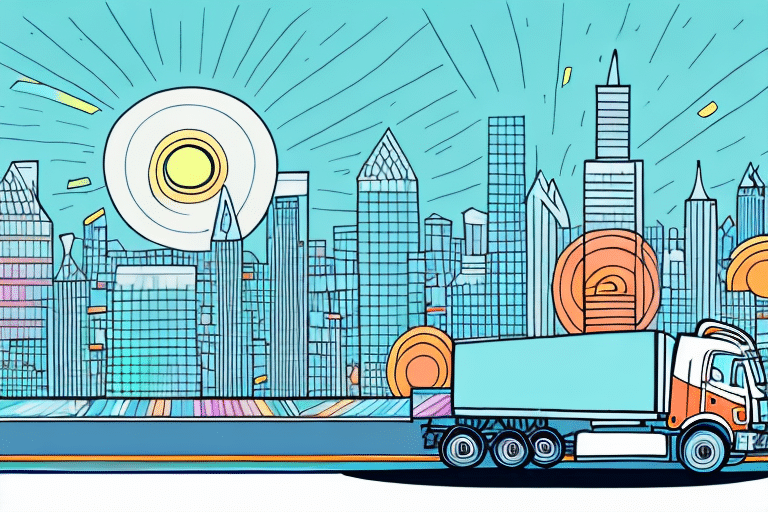Current State of Women in Logistics
Despite significant advancements in gender equality across various industries, women remain underrepresented in the logistics sector. According to a 2023 report by Logistics Bureau, women constitute only about 20% of the workforce in logistics roles globally. This disparity is evident across various functions, including transportation, warehousing, supply chain management, and leadership positions.
Barriers to Women's Advancement in Logistics
Gender Stereotyping and Cultural Norms
Traditional gender roles and stereotypes often discourage women from pursuing careers in logistics. The perception that logistics is a "male-dominated" field can deter young women from considering it as a viable career option.
Lack of Role Models and Mentorship
The scarcity of female leaders in logistics means fewer role models and mentors for aspiring women professionals. This absence can hinder career progression and limit opportunities for networking and professional development.
Work-Life Balance Challenges
Logistics roles often demand long hours, irregular schedules, and frequent travel, which can be challenging for women who may also bear significant caregiving responsibilities. The lack of flexible work arrangements exacerbates this issue.
Physical and Safety Concerns
Some logistics positions involve physically demanding tasks or work in environments where safety is a concern. These factors can disproportionately affect women, who may feel less comfortable or secure in such settings.
Strategies to Encourage and Support Women in Logistics Careers
Implementing Mentorship and Networking Programs
Establishing mentorship programs can provide women with guidance, support, and opportunities to advance in their careers. Networking events tailored for women can also facilitate connections with industry leaders and peers.
Promoting Flexible Work Arrangements
Offering flexible schedules, remote work options, and family-friendly policies can help women balance professional and personal responsibilities, making logistics careers more accessible and sustainable.
Providing Education and Training Opportunities
Investing in education and specialized training programs can equip women with the necessary skills and knowledge to excel in logistics roles. Partnerships with educational institutions can also create pipelines for female talent.
Fostering an Inclusive Workplace Culture
Cultivating a workplace environment that values diversity and inclusion is essential. This includes implementing unbiased hiring practices, promoting equal pay, and ensuring that women have equal opportunities for advancement.
Success Stories of Women in Logistics
Highlighting the achievements of women in logistics can inspire and motivate others to pursue similar paths. For instance, Jane Doe, CEO of Global Logistics Solutions, transformed her company into a leader in sustainable logistics practices. Similarly, Maria Smith, Head of Supply Chain at EcoTransport, pioneered innovative supply chain strategies that significantly improved operational efficiency.
Importance of Gender Diversity in Logistics
Gender diversity brings a variety of perspectives and problem-solving approaches, enhancing innovation and decision-making within the logistics sector. Studies, such as those from Harvard Business Review, have shown that diverse teams are more effective and drive better business outcomes.
Overcoming Bias and Stereotypes in Logistics
Addressing Unconscious Bias
Training programs aimed at recognizing and mitigating unconscious bias can help create a more equitable workplace. Educating all employees about the impact of bias is a crucial step toward cultural change.
Promoting Gender-Neutral Recruitment Practices
Using gender-neutral language in job descriptions and implementing structured interview processes can reduce biases in hiring, ensuring that women receive fair consideration for logistics roles.
Increasing Representation in Leadership
Actively promoting women into leadership positions can help dismantle stereotypes and create a more balanced representation at all levels of the organization.
Future Steps for Achieving Gender Equality in Logistics
Collaborative Industry Initiatives
Industry-wide collaborations and partnerships can drive systemic change. Initiatives that focus on mentorship, education, and advocacy are essential for fostering an inclusive environment in logistics.
Recognizing and Rewarding Female Talent
Implementing recognition programs that highlight the contributions of women can boost morale and encourage more women to pursue and remain in logistics careers.
Setting Clear Diversity Goals
Organizations should establish and communicate clear diversity and inclusion goals, regularly assessing progress and holding leadership accountable for meeting these objectives.
In conclusion, enhancing the representation and support of women in the logistics industry not only promotes fairness and equality but also drives innovation and business success. By addressing existing barriers and implementing strategic initiatives, the logistics sector can harness the full potential of its female workforce, paving the way for a more dynamic and inclusive future.






















